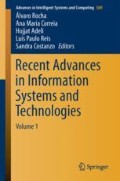Abstract
Robots are increasingly used in numerous life applications. Therefore, humans are looking forward to create productive robots. Robot learning is the process of obtaining additional information to accomplish an objective configuration. Moreover, robot learning from demonstration is to guide the robot the way to perform a particular task derived from human directions. Traditionally, modeling the demonstrated data was applied on discrete data which would result in learning outcome distortions. So as to overcome such distortion, preprocessing of the raw data is necessary. In this paper, trajectory learning from demonstration scheme is proposed. In our proposed scheme, the raw data are initially preprocessed by employing the principal component analysis algorithm. We experimentally compare our proposed scheme with the most recent proposed schemes. It is found that the proposed scheme is capable of increasing the efficiency by minimizing the error in comparison to the other recent work with significant reduced computational cost.
Access this chapter
Tax calculation will be finalised at checkout
Purchases are for personal use only
References
Argall, B., Chernova, S., Veloso, M., Browning, B.: A survey of learning from demonstration. Robot. Auton. Syst. 57(5), 469–483 (2009)
Alizadeh, T., Calinon, S., Caldwell, D.G.: Learning from demonstrations with partially observable task parameters. In: Proceedings of the IEEE International Conference on Robotics and Automation (ICRA), Hong Kong, China, pp. 3309–3314 (2014)
Calinon, S., Billard, A.: Stochastic gesture production and recognition model for a humanoid robot. In: Proceedings of the IEEE/RSJ International Conference on Intelligent Robots and Systems, Sendai, Japan, pp. 2769–2774 (2004)
Asfour, T., Gyarfas, F., Azad, P., Dillmann, R.: Imitation learning of dual-arm manipulation tasks in a humanoid robot. In: Proceedings of the 6th IEEE RAS International Conference on Human. Robots, Genoa, Italy, pp. 40–47 (2006)
Vakanski, A., Mantegh, I., Irish, A., Janabi-Sharifi, F.: Trajectory learning for robot programming by demonstration using Hidden Markov Model and Temporal Dynamic Warping. Robot. Auton. Syst. 42(4), 1039–1052 (2012)
Field, M., Stirling, D., Pan, Z., Naghdy, F.: Learning trajectories for robot programing by demonstration using a coordinated mixture of factor analyzers. IEEE Trans. Cybern. 46(3), 706–717 (2015)
van den Berg, J., et al.: Superhuman performance of surgical tasks by robots using iterative learning from human-guided demonstrations. In: Proceedings of the 2010 International Conference on Robotics and Automation (ICRA), Anchorage, AK, USA, pp. 2074–2081 (2010)
Kormushev, P., Calinon, S., Caldwell, D.G.: Robot motor skill coordination with em-based reinforcement learning. In: Proceedings of the IEEE/RSJ International Conference on Intelligent Robots and Systems (IROS) (2010)
Smith, L.I.: A tutorial on principal components analysis, February 2002
MacQueen, J.: Some methods for classification and analysis of multivariate observations. In: Proceedings of the Fifth Berkeley Symposium on Mathematical Statistics and Probability, vol. 1, pp. 281–297 (1967)
Rabiner, L.: A tutorial on hidden Markov models and selected applications in speech recognition. Proc. IEEE 77(2), 257–286 (1989)
Tso, S.K., Liu, K.P.: Demonstrated trajectory selection by hidden Markov model. In: Proceedings of the IEEE International Conference on Robotics and Automation, Albuquerque, NM, pp. 2713–2718 (1997)
Rice, J., Rosenblatt, M.: Smoothing splines: regression, derivatives and deconvolution. Ann. Stat. 11(1), 141–156 (1983)
Calinon, S., D’halluin, F., Sauser, E.L., Caldwell, D.G., Billard, A.G.: Learning and reproduction of gestures by imitation: an approach based on hidden Markov model and Gaussian mixture regression. IEEE Robot. Autom. Mag. 17(2), 44–54 (2010)
Author information
Authors and Affiliations
Corresponding author
Editor information
Editors and Affiliations
Rights and permissions
Copyright information
© 2017 Springer International Publishing AG
About this paper
Cite this paper
Osman, A.A.E., El-Khoribi, R.A., Shoman, M.E., Wahby Shalaby, M.A. (2017). Trajectory Learning Using Principal Component Analysis. In: Rocha, Á., Correia, A., Adeli, H., Reis, L., Costanzo, S. (eds) Recent Advances in Information Systems and Technologies. WorldCIST 2017. Advances in Intelligent Systems and Computing, vol 569. Springer, Cham. https://doi.org/10.1007/978-3-319-56535-4_18
Download citation
DOI: https://doi.org/10.1007/978-3-319-56535-4_18
Published:
Publisher Name: Springer, Cham
Print ISBN: 978-3-319-56534-7
Online ISBN: 978-3-319-56535-4
eBook Packages: EngineeringEngineering (R0)

